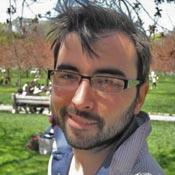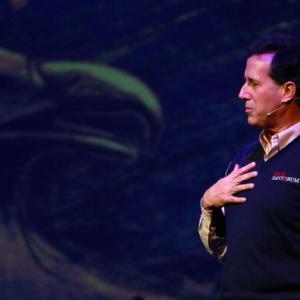
Jonathan D. Fitzgerald grew up in the church, and not just figuratively. From Sunday morning to Saturday evening, every day of his childhood and teenage years was filled with the standard variety of evangelical activities—Christian school, youth group, Pioneers Club, Bible studies, lock-ins, outreach events, concerts, and worship services.
And yet, many of his most transformative experiences with Christianity occurred outside of evangelicalism. In the ninth grade he enrolled in an all-male Catholic high school where he added Catholic social teaching to his Christian experience. From there he attended Gordon College, where he had the opportunity to travel abroad, studying in Nairobi, Kenya. After college, Fitzgerald went on to graduate school at the University of Massachusetts in Boston where he eventually earned an M.A. in English. It was there, in the first secular school he had ever attended, that the plethora of values and beliefs he had been collecting over the years coalesced into a hybrid of Christian traditions.
In 2008, Fitzgerald and his wife Stephanie, a painter, moved from Boston to Jersey City, New Jersey, so Stephanie could pursue an art degree in Manhattan. In that time, Fitzgerald joined the staff of Patrolmag.com and added a number of writing credentials to his resume, including The Wall Street Journal, Christianity Today, Religion Dispatches, The Huffington Post, Killing the Buddha, and The Curator. The journey that began in the classrooms, Sunday schools, and sanctuaries of his youth continues today in reading, writing, and participation in a local episcopal parish.
Posts By This Author
No Country for Evangelicals
With the Iowa caucus, the "First in the Nation" New Hampshire primary, and South Carolina's primary now behind us, the field of contenders for the Republican nomination continues to shrink. I've watched with great interest as the spectacle rolls on and a parade of non-Romney's (Non-Roms, going forward) rhythmically rise and fall. What is perhaps most interesting about the current frontrunners is the lack of an obvious evangelical candidate. For all the talk that we hear about the importance of the evangelical vote, one would suspect at least one of the potential nominees to be, you know, an evangelical.
But Michele Bachmann is out of the race after a promising start in the Iowa straw poll. Perry, whose entrance into the race as a more "electable" evangelical candidate may have contributed to Bachmann's quick downfall, all but eliminated himself in a number of now infamous debate flops. That leaves one not particularly religious Baptist, two Roman Catholics, and a Mormon. Rick Santorum, a Catholic, is perhaps the most socially conservative and thus the most evangelical-looking of the Non-Roms, but many evangelicals have a deep mistrust of Catholics, so it is doubtful that, as they did in Iowa, evangelicals will support him despite his Catholicism.
So what happened here? Back in 2004, when talking about the evangelical vote was all the rage, one could presume that evangelicals were a unified political front—that denominations or non-denominations within evangelicalism didn't matter, theological differences were moot, and ending abortion was enough to tie them all together. The problem with this presumption is that it was never true. There was never one kind of evangelical. If there was, self-identified evangelicals wouldn't have to add a definition or disclaimer every time they identify as such.
Should Churches Be Allowed to Meet in Public Schools?
A recent U.S. Court of Appeals ruling, and the subsequent fallout here in New York, hits close to home for many of us New Yorkers. The ruling, which came down on June 2, allows for the city of New York to restrict religious groups from meeting in schools
